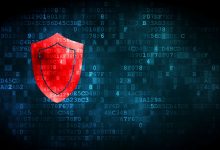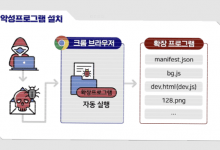Protecting Your Business from Ransomware Attacks
In today’s digital era, ransomware attacks have become a significant concern for businesses of all sizes. These malicious attacks can have devastating consequences, resulting in data loss, financial loss, and even reputational damage. It is crucial for businesses to proactively protect themselves from ransomware attacks to ensure the continuity of operations and safeguard sensitive information. This article will discuss some essential steps businesses can take to protect themselves from ransomware attacks.
1. Employee Education:
One of the primary entry points for ransomware attacks is through phishing emails or malicious downloads. Therefore, it is essential to educate employees about recognizing suspicious emails, links, and attachments. Regular training sessions on cybersecurity awareness should be conducted, emphasizing the importance of not clicking on unverified links or downloading unknown attachments. Developing a culture of vigilance and cautiousness among employees can significantly reduce the risk of ransomware attacks.
2. Regular Software Updates:
Outdated software can have vulnerabilities that cybercriminals exploit to install ransomware. Keeping software, operating systems, and applications up to date with the latest security patches is crucial. It is advisable to enable automatic updates wherever possible to ensure patches are promptly applied. Additionally, using reputable antivirus and anti-malware software can help identify and block potential threats.
3. Strong Passwords and Multi-factor Authentication:
Weak passwords are an open invitation to cybercriminals. Businesses should enforce the use of complex passwords and encourage employees to avoid using easily guessable passwords like birthdays or sequential numbers. Implementing multi-factor authentication (MFA) adds an extra layer of security by requiring users to verify their identity through a secondary method, such as a fingerprint or one-time password. This significantly reduces the risk of unauthorized access and minimizes the chances of falling victim to ransomware attacks.
4. Regular Data Backup:
Regularly backing up critical data and information is essential to protect businesses from ransomware attacks. Backing up data on offsite or cloud storage ensures that if a ransomware attack occurs, data can be restored to a clean state without paying the ransom. It is crucial to perform regular backups and test the restore process to ensure data integrity.
5. Network Segmentation:
Implementing network segmentation helps protect against ransomware by limiting the spread of the attack. By dividing a network into separate segments with controlled access, even if one segment is compromised, the attack’s impact can be mitigated, preventing lateral movement to other parts of the network. This measure adds an additional layer of protection, complicating the attacker’s ability to gain access to the entire network.
6. Incident Response Plan:
Developing an effective incident response plan is crucial to minimize the damage and recovery time in case a ransomware attack occurs. The plan should include steps to isolate affected systems, report the incident to appropriate authorities, and engage professionals for remediation and recovery. Regularly testing the incident response plan through simulated exercises helps ensure that it is effective and that employees are well-prepared to handle an actual attack.
7. Regular Security Audits:
Conducting regular security audits can help identify vulnerabilities and address them proactively before they are exploited by attackers. Businesses should regularly assess their systems, networks, and applications for any potential weaknesses and rectify them immediately. Hiring third-party security experts can provide an objective evaluation of a business’s security posture and suggest improvements.
In conclusion, protecting your business from ransomware attacks requires a multi-layered approach that involves employee education, regular software updates, strong passwords, data backup, network segmentation, incident response planning, and security audits. By implementing these strategies, businesses can significantly reduce the risk of falling victim to ransomware attacks, ensuring the safety of their data, finances, and reputation. Remember, prevention is key, so investing in robust security measures is always a wise decision in today’s cyber-threat landscape.





